 Petzlover
Petzlover Belgian Griffon is originated from Belgium but Himalayan Sheepdog is originated from India. Belgian Griffon may grow 51 cm / 20 inches shorter than Himalayan Sheepdog. Belgian Griffon may weigh 39 kg / 85 pounds lesser than Himalayan Sheepdog. Both Belgian Griffon and Himalayan Sheepdog has almost same life span. Belgian Griffon may have less litter size than Himalayan Sheepdog. Belgian Griffon requires Moderate Maintenance. But Himalayan Sheepdog requires High Maintenance
Belgian Griffon is originated from Belgium but Himalayan Sheepdog is originated from India. Belgian Griffon may grow 51 cm / 20 inches shorter than Himalayan Sheepdog. Belgian Griffon may weigh 39 kg / 85 pounds lesser than Himalayan Sheepdog. Both Belgian Griffon and Himalayan Sheepdog has almost same life span. Belgian Griffon may have less litter size than Himalayan Sheepdog. Belgian Griffon requires Moderate Maintenance. But Himalayan Sheepdog requires High Maintenance
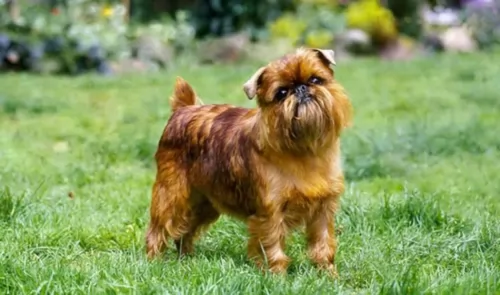 The Belgian Griffon isn’t your most attractive dog, but maybe its his quirky, gremlin looks that makes him such an adored pet for many. There are different varieties of Griffon, and the Belgian- and Brussels Griffon are one and the same. All small Belgian dogs have the same breed standards, with the Belgian having a rough coat The dog hails from Belguim and its ancestors were no doubt a mix of the Belgian street dog, the Stable Griffon and the Affenpinscher.
The Belgian Griffon isn’t your most attractive dog, but maybe its his quirky, gremlin looks that makes him such an adored pet for many. There are different varieties of Griffon, and the Belgian- and Brussels Griffon are one and the same. All small Belgian dogs have the same breed standards, with the Belgian having a rough coat The dog hails from Belguim and its ancestors were no doubt a mix of the Belgian street dog, the Stable Griffon and the Affenpinscher.
Later on in the 1800s, this combination was then crossed with the Pug, giving the dog the brachycephalic or flat faced look.
Unfortunately no written records were kept about the precise origin of this breed, but there is also the idea that the King Charles- and English Toy Spaniel were also involved in its development. These small dogs were bred to catch rats in the barns of European estates.
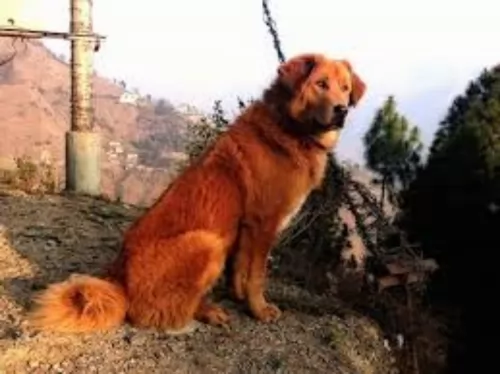 The Himalayan Sheepdog comes from Nepal originally and was bred as a guardian for livestock. The exact location where the breed comes from is not documented well but it is thought that they come from North India and Nepal and they are rare outside of that area. They are a mountain dog – close in ancestry to the Himalayan Mastiff, and the Kinnaur Sheepdog of Tibet (Himalaya). All these Himalayan mountain dogs were all called “Gaddi dogs”. The term was used for all the large dogs no matter what their breeds actually were.
The Himalayan Sheepdog comes from Nepal originally and was bred as a guardian for livestock. The exact location where the breed comes from is not documented well but it is thought that they come from North India and Nepal and they are rare outside of that area. They are a mountain dog – close in ancestry to the Himalayan Mastiff, and the Kinnaur Sheepdog of Tibet (Himalaya). All these Himalayan mountain dogs were all called “Gaddi dogs”. The term was used for all the large dogs no matter what their breeds actually were.
The Himalayan Sheepdog is called by various names depending on where they were from. They are called Gaddi Leopardhund in Himachai Pradesh, In Nepal they are known as Bhote Kukkur or Bhotiya. Then there are Chamba Gaddi dogs. They are an ancient breed that existed before documentation on breeds was kept.
They acted as both guardians and herders. They guarded the mountain men’s encampments as well as the livestock. They were also used at times to hunt large animals. Today they are found only within Nepal and India. These Himalayan Sheepdogs are on the verge of extinction in India. There are no breeding programs and their isolation has caused the dilution of the gene pool. It is not recognized by any clubs including the UKC and the AKC.
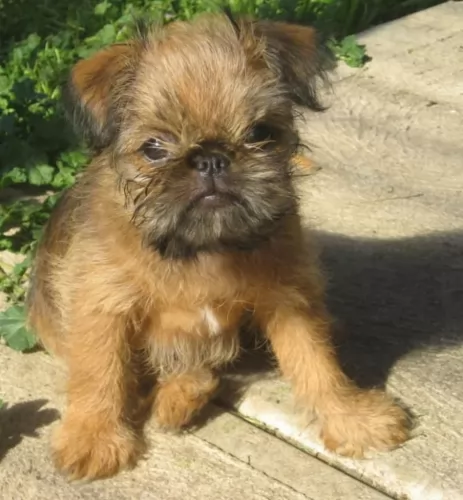 There are different variations of this dog to give it its distinctive look and size. This quaint looking little Griffon canine comes with two different coat types - soft or wiry. With the Belgian Griffon, his wiry coat of red, tan or black will need to be brushed at least twice a week. Shedding with this dog is seasonal.
There are different variations of this dog to give it its distinctive look and size. This quaint looking little Griffon canine comes with two different coat types - soft or wiry. With the Belgian Griffon, his wiry coat of red, tan or black will need to be brushed at least twice a week. Shedding with this dog is seasonal.
He has a compact, sturdy little body, and he trots around with attitude. With his sharp pointed ears and whiskers, he has been given the nickname ‘bearded dog’. His dark black eyes are alert. He is self-confident, intelligent and curious breed, a great family pet and good with children if he has grown up with them in the home. He is good with other pets. The fact that this is a small breed and that he doesn’t have excessive energy levels, means he is adaptable to city- and country living.
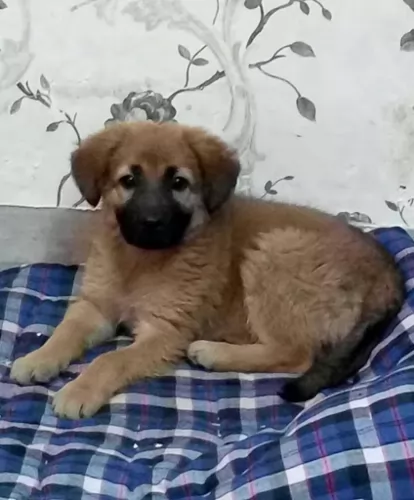 The breed is a large dog, very athletic and strong. The Himalayan Sheepdog is muscular with a deep chest, strong neck and strong shoulders. It has a medium tail that is thick and busy, curled high over its back. It is a daunting dog that can be very intimidating. They have well padded and large paws. With a broad head and wide forehead, they have a strong, wide muzzle. Their ears are high on the head and hang from the sides. They have almond shaped medium eyes that are deep set with a black nose.
The breed is a large dog, very athletic and strong. The Himalayan Sheepdog is muscular with a deep chest, strong neck and strong shoulders. It has a medium tail that is thick and busy, curled high over its back. It is a daunting dog that can be very intimidating. They have well padded and large paws. With a broad head and wide forehead, they have a strong, wide muzzle. Their ears are high on the head and hang from the sides. They have almond shaped medium eyes that are deep set with a black nose.
They are a very active and swift dogs. By their nature they are constantly in motion, patrolling their territory and guarding their flock and people. Their devotion to their people and their courage is the stuff of legends. Their coat is double with a large ruff around their necks that resembles a mane. The inner coat is dense and short while the outer coat is longer but dense as well.
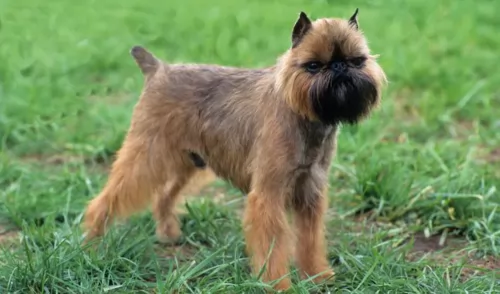 The Belgian Griffon is an affectionate pet and often establishes a strong bond with one member of the family. You’ll have your Griffon with you for about 15 years so make sure he is trained and a pleasure to have around.They are difficult to train, being somewhat stubborn so they are going to require patience. They’re sensitive too, and they won’t respond well to aggressive treatment.
The Belgian Griffon is an affectionate pet and often establishes a strong bond with one member of the family. You’ll have your Griffon with you for about 15 years so make sure he is trained and a pleasure to have around.They are difficult to train, being somewhat stubborn so they are going to require patience. They’re sensitive too, and they won’t respond well to aggressive treatment.
They’re much more indoor dogs than outdoor dogs because they’re also vulnerable to heat stroke. They just want to come indoors and be with their human family, and when you do that for them, they’ll become a wonderful friend and companion to you.
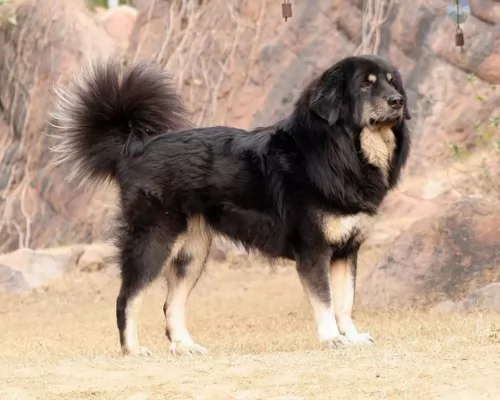 Yes with enough proper socialization
Yes with enough proper socialization
Protection and loyalty
They are not especially adaptable and need a large yard. They are not good in an apartment.
Intelligent but stubborn and independent making them able to learn if they want to.
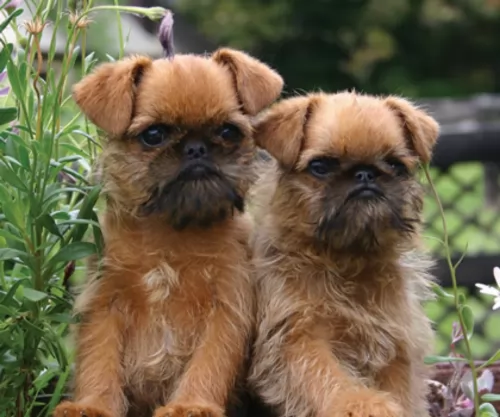 When you get your Griffon from a reputable breeder, you always have a better chance that he’ll be healthy. As it is, the Belgian Griffon has few hereditary health issues. However his dark eyes will have some genetic problems to contend with and he could suffer with progressive retinal atrophy. This is an illness which can lead to blindness
When you get your Griffon from a reputable breeder, you always have a better chance that he’ll be healthy. As it is, the Belgian Griffon has few hereditary health issues. However his dark eyes will have some genetic problems to contend with and he could suffer with progressive retinal atrophy. This is an illness which can lead to blindness
Syringomyelia – this is a neurological condition – an abnormality of the spinal cord – a disease which occurs more frequently in small breeds. It can cause your pet to endure a lot of pain.
Birthing Issues - these little dogs often have problems with giving birth, and a vet often has to intervene and perform a cesarean.
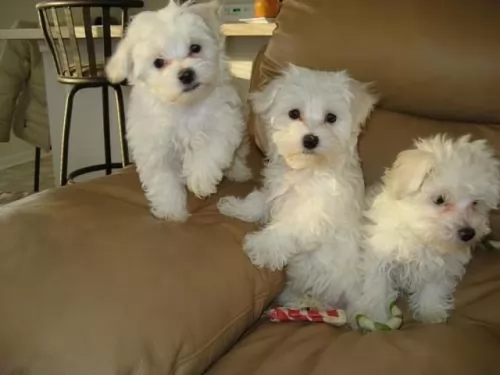 This is a pretty healthy breed with very few health issues. They have the usual large dog issues.
This is a pretty healthy breed with very few health issues. They have the usual large dog issues.
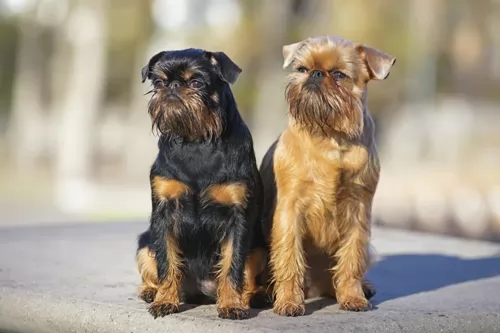 The Belgian Griffon will do well if you invest in high quality foods. You can make your own, but if you’re concerned about his health, it would be best to check what ingredients should go into his home-prepared meals to ensure he gets all the vitamins and minerals he needs.
The Belgian Griffon will do well if you invest in high quality foods. You can make your own, but if you’re concerned about his health, it would be best to check what ingredients should go into his home-prepared meals to ensure he gets all the vitamins and minerals he needs.
If you want to go with commercially manufactured dog foods, check with your vet about wet- and dry foods. Your vet will help with choosing a food appropriate to his size and age. Always ensure that there is clean, fresh water available to your pet.
Even though he is a small breed, he is fairly active and he will need his fair share of exercise like ball games and walks. Training and socialization are a must for him. You’ll notice that training isn’t particularly easy with this breed, and first time dog owners might not have the patience with him.
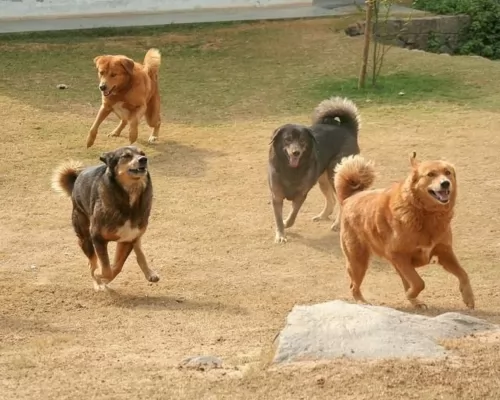 Feed the puppy 2-3 times a day with a total of two cups of a quality dog food for large breed dogs.
Feed the puppy 2-3 times a day with a total of two cups of a quality dog food for large breed dogs.
Feed the adult dog twice a day with 3 to 4 cups of a high quality dry dog food for large breed dogs.
They are very strong and athletic.
The Himalayan Sheepdog needs exercise but not to be overworked. They should be taken on long walks at least once a day. They might play fetch or run in a yard, but they don’t like too much exercise.